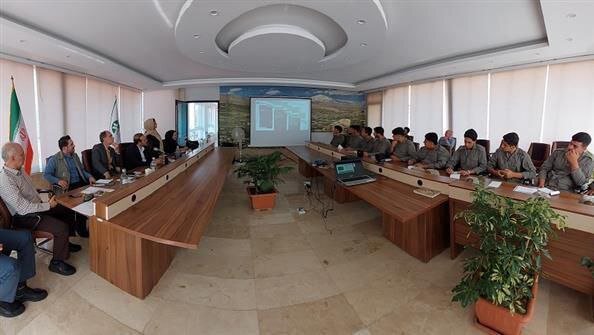Educational workshop being held for environmental protection students

TEHRAN – The Department of Environment (DOE), in cooperation with the United Nations Educational, Scientific, and Cultural Organization (UNESCO), is conducting an educational workshop to empower students studying environmental protection.
Hosted by Mazandaran province, the project aims to boost the students’ capabilities and skills in protecting the environment based on international standards, and enhance their knowledge through making them familiar with modern concepts in environmental protection, doe.ir reported.
Throughout the workshop, the students will practically learn the best strategies for effective interactions with local communities, resolving conflicts, principles for biosphere reserve protection, and the role of local communities, as well as methods to collect and record biodiversity data.
Environmental protection is a field of study being offered by the Technical and Vocational Training Organization aimed at educating specialized forces for the conservation of the environment.
Currently, the field of study is offered in Mazandaran, Fars, Khuzestan, and Ardabil provinces.
UNESCO programs
Environmental education is placed among the list of major programs of the UNESCO in Iran, aiming to develop sustainable solutions and international cooperation to address environmental challenges.
From UNESCO’s perspective, environmental education is a learning process that raises public awareness about the environment and its challenges; it equips individuals with knowledge, skills, values, experiences, and goals to tackle these environmental issues, IRNA quoted Hassan Fartosi, the Secretary General of the UNESCO National Commission in Iran, as saying.
The official made the remarks while addressing the 8th National Conference and Specialized Exhibition of Environmental Education held on May 20.
According to this definition, environmental education includes achieving environmental awareness, understanding challenges, and taking actions, Fartosi noted.
UNESCO helps countries and educational institutions develop and implement effective environmental education programs.. It strives to preserve the environment through its international programs in the field of natural science and earth science education, the official added.
These include the international hydrology program, the international geoscience and geoparks program, the intergovernmental oceanography program, and the international basic sciences program. Greening education partnership is one of the most important initiatives adopted by UNESCO to support countries in tackling climate change, he said.
UNESCO works to reduce the impacts of global change and water resources, and promote education for sustainable use of water resources; the organisation calls on member states to work together to address these challenges more effectively.
The 8th Conference served as a platform for sharing ideas, expertise, and achievements to promote sustainable development by conducting scientific research, utilizing modern technologies, and developing innovative solutions.
Courses for government officials
In March, Mohammad Medadi, an official with the Department of Environment, said the DOE will hold environmental protection courses for all officials and managers working in the government sector.
Passing these training courses is mandatory, IRNA quoted Medadi as saying.
The Department of Environment’s center for environmental education and protection has developed three training courses related to environmental governance and its components for the managers and experts of agencies, he explained.
Undoubtedly, these training courses will help the government face emerging challenges such as an imbalance of energy resources, water, and biological pollution, he added.
Shina Ansari, the head of the Department of Environment, has stated that no single organization can successfully preserve the environment on its own. Environmental issues will be best addressed through public participation.
“There are many environmental challenges in habitats, wildlife, and wetlands which cannot be tackled just by the efforts and measures of the Department of Environment,” IRIB quoted Ansari as saying.
President Masoud Pezeshkian has offered a program with a focus on the preservation of the environment that is structured around six axes: moving towards a green economy; managing and improving various quantitative and qualitative dimensions of environmental imbalances (such as economy, energy, and water); effectively protecting biological resources (including natural resources and biodiversity); achieving good environmental governance; addressing public demands in the field of environment, and enhancing international bilateral or multilateral cooperation in the field of environment.
MT/MG
